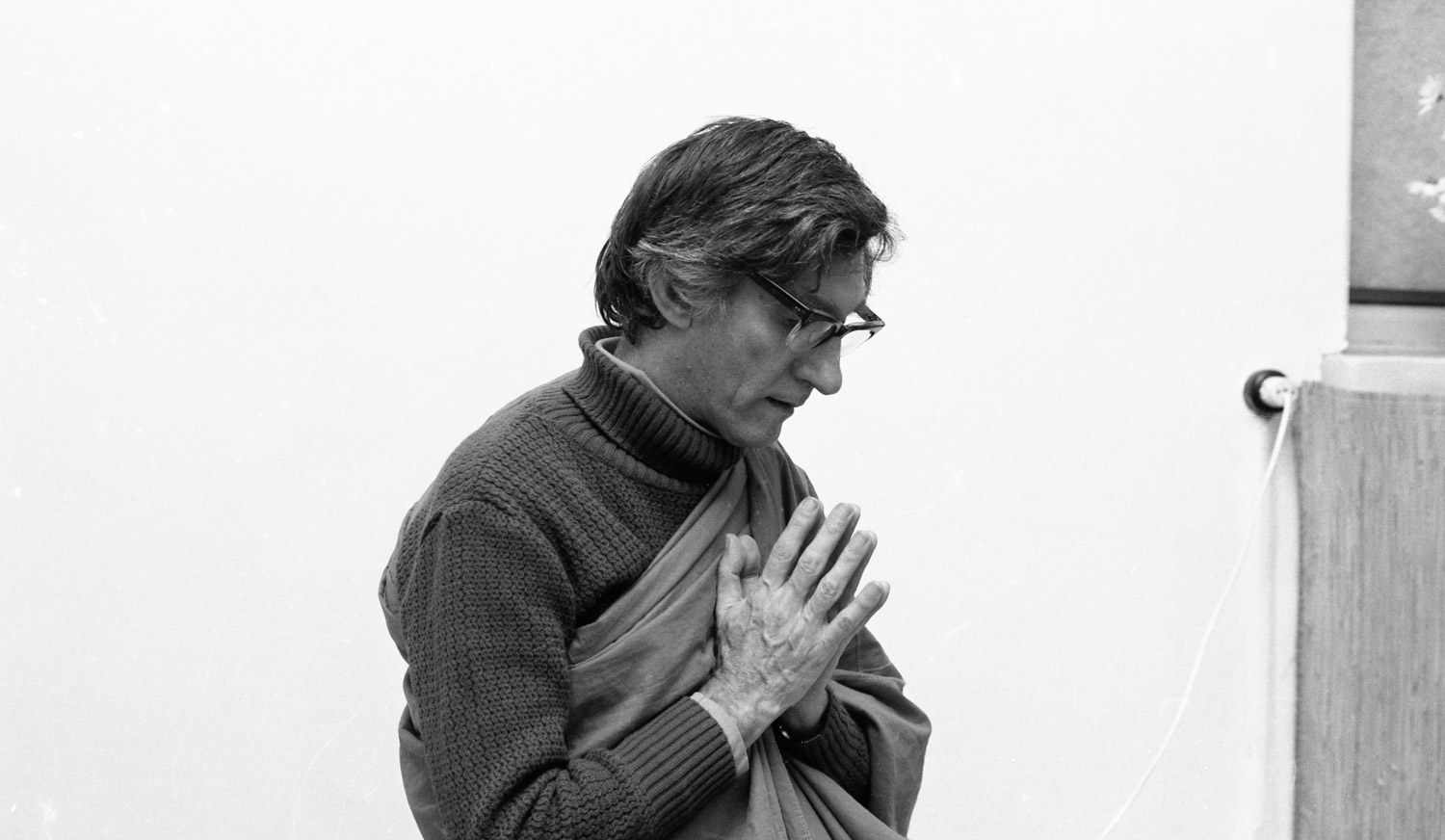Sangharakshita was born Dennis Lingwood in South London, in 1925. Largely self-educated, he developed an early interest in the cultures and philosophies of the East and realized that he was a Buddhist at the age of sixteen.
The Second World War took him, as a conscript, to India, where he stayed on to become the Buddhist monk Sangharakshita. After studying for some years under leading teachers from the major Buddhist traditions, he went on to teach and write extensively. He also played a key part in the revival of Buddhism in India, particularly through his work among followers of Dr B.R. Ambedkar.
After twenty years in India, he returned to England to establish the Friends of the Western Buddhist Order (now Triratna) in 1967. A translator between East and West, between the traditional world and the modern, between principles and practices, Sangharakshita's depth of experience and clear thinking have been appreciated throughout the world. He has always particularly emphasised the decisive significance of commitment in the spiritual life, the paramount value of spiritual friendship and community, the link between religion and art and the need for a 'new society' supportive of spiritual aspirations and ideals.

For some, Sangharakshita is a controversial figure and the experimentation involved in creating a radical new Buddhist tradition included aspects that were later abandoned. In particular, there was a period in which he had sexual relationships with a number of his male disciples, something that has been subject of much discussion in recent years and culminated in a thorough investigation and report by senior members of the Order.
In 1978 Sangharakshita founded the London Buddhist Centre as a ‘flagship’ centre in the new Buddhist movement and lived in the building for some years.
He passed away in the company of friends on the 30th October 2018 and is buried at Adhisthana, his retreat-centre home in Herefordshire. Many of his disciples refer to him as ‘Bhante’ – an affectionate term for one’s teacher.

